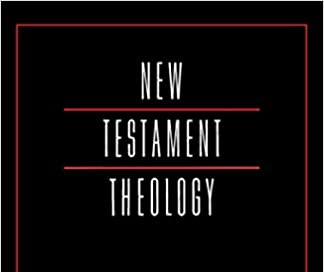Okay, here are my top seven books for those who want to understand the book of Revelation
#7: Timothy Beale, The Book of Revelation: A Biography.
Terrific insights into how John’s apocalypse has shaped much of history! This is a fun and readable exercise in reception-history. Beale shows how Revelation has inspired also sorts of apocalyptic fantasies and expectations. Beale starts out with a discussion of hexakosioihexekontahexaphobia, which fear of the number 666. He also notes debates over the canonicity of Revelation in the early church and how many feminists think the language of patriarchy and violence renders it irredeemable. Beale regards Revelation much like Frankenstein’s monster: “John’s text of Revelation is not only like Shelley’s novel; it is also like the novel’s monster, just as John is also like the monster’s creator, Dr. Frankenstein. For, as we will see, the text of Revelation is not so much born from the mind of its creator as it is stitched together from pieces of other texts and then animated, given a life of its own” (9).
#6: David Aune, Revelation (Word Biblical Commentary).
Great commentary, esp. on the Greco-Roman background to Revelation. Aune knows his sources and in this massive three-volume collection it shows.
#5: Craig Koester, Revelation (Anchor Bible).
My go-to commentary these days, very solid and sober. Even better than Greg Beale’s excellent commentary in the NIGTC series. Koester is terrific at commentary writing, I hope he does Gospel of John in the AB series.
In this landmark commentary, Craig R. Koester offers a comprehensive look at a powerful and controversial early Christian text, the book of Revelation. Originally written for Christian communities in Asia Minor, Revelation depicts scenes of cosmic conflict in which God, the creator of the world, overcomes the forces of destruction and makes all things new. This often misunderstood portion of the New Testament repeatedly surprises readers by warning that judgment is imminent, only to interrupt the visions of terror with messages of hope and redemption. Koester provides richly textured descriptions of the book’s setting and language, making extensive use of Greek and Latin inscriptions, classical texts, and ancient Jewish writings, including the Dead Sea Scrolls. While Revelation has often been viewed as world-negating, this commentary focuses on its deep engagement with social, religious, and economic issues. It also addresses the book’s volatile history of interpretation and its cultural impact over the centuries. The result is a groundbreaking study that provides powerful insights and sets new directions for the continued appreciation of this visionary religious text.
#4: David deSilva, Unholy Allegiances.
This is a great book for showing people that Revelation is not about what they think it is about.
Amid the fervor of popular apocalyptic "end-time" speculation, David deSilva invites readers to encounter Revelation as a word written to seven real congregations living under the shadow of the Roman empire. He shows how John "lifts the veil" from the public story by which Rome promotes the legitimacy and benefits of its rule, calling his readers to withdraw from participating in the systems that perpetuate exploitation, violent suppression of the truth, and lies about the nature of human empire. John is seen to invite his seven congregations, and, through them, us, to discover a radical obedience to the One true God and that God's vision for authentic and life-giving human community.
#3: Craig Koester (ed.), The Oxford Handbook of the Book of Revelation
This is probably the best reference resource on Revelation. Don’t expect to be able to afford to buy it.
The Book of Revelation holds a special fascination for both scholars and the general public. The book has generated widely differing interpretations, yet Revelation has surprisingly not been the focus of many single-volume reference works. The Oxford Handbook of the Book of Revelation fills a need in the study of this controversial book. Thirty essays by leading scholars from around the world orient readers to the major currents in the study of Revelation. Divided into five sections-Literary Features, Social Setting, Theology and Ethics, History of Reception and Influence, and Currents in Interpretation-the essays identify the major lines of interpretation that have shaped discussion of these topics, and then work through the aspects of those topics that are most significant and hold greatest promise for future research.
# 2: Steve Price, Rituals and Power and Steven Friesen, Imperial Cults and the Apocalypse of John.
This is a two-way tie about two books which are very important for mapping the significance of emperor worship as the background to the Book of Revelation.
#1: Richard Bauckham, Theology of the Book of Revelation.
This book is very short but a terrific summary of the theology of Revelation. I continue to be amazed at how excellent this book is! Love this quote from the book:
Revelation offers not an esoteric and encoded forecast of historical events but rather a theocentric vision of the coming of God’s universal kingdom, contextualised in the late first-century world dominated by Roman power and ideology. It calls on Christians to confront the political idolatries of the time to participate in God’s purpose of gathering all the nations into his kingdom. Once Revelation is properly grounded in its original context it is seen to transcend that context and speak to the contemporary church.– Richard Bauckham.
What about you, anything you’d switch in or switch out from this list?





Tom Torrance, under whom I studied in Edinburgh, published in 1960 a marvellous series of sermons that I still use as a 'go to' guide on Revelation called 'Apocalypse today'. It is a valuable resource for preachers in how he structures his exposition of each section.
Completely agree about Bauckham - an outstanding book. My deep frustration is that I lent it to someone and can’t remember who! I am also greatly enjoying Ian Paul’s Tyndale Commentary - very readable, insightful with great pointers for application.